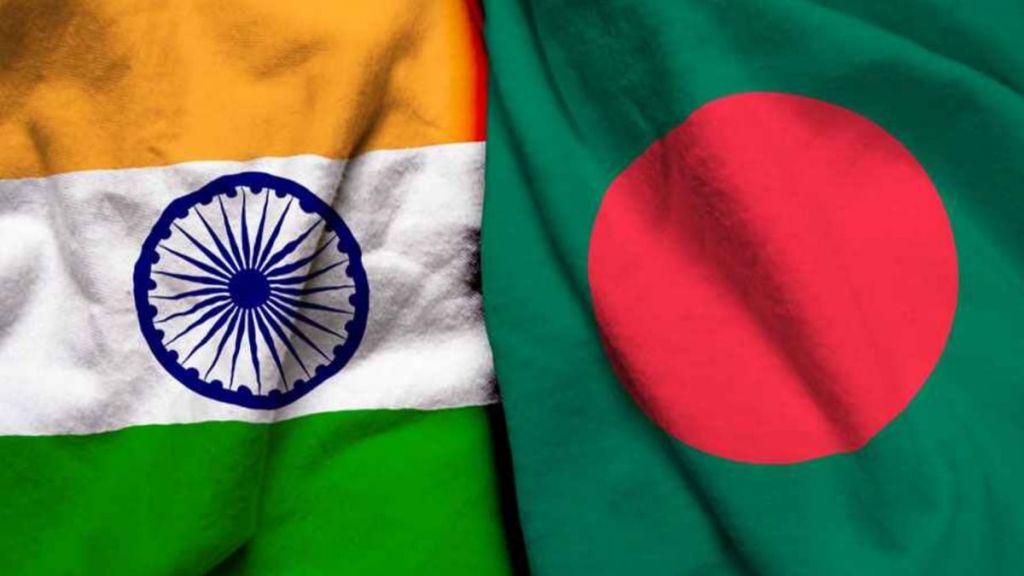
On December 16, 1971, India and Bangladesh celebrated a shared triumph as the Indian Army secured the liberation of East Pakistan. Yet, in 2024, a dark cloud hung over this joint legacy. While Indian and Bangladeshi armed forces marked Vijay Diwas and Victory Day together in Kolkata and Dhaka, Bangladesh itself stood on the brink of collapse following a dramatic upheaval earlier in the year.
The roots of this crisis began in August 2024, when a student-led uprising toppled the Awami League (AL) government, which had held power since 2009. Chaos swept the nation—29 AL leaders were killed, properties vandalized, and ministers arrested. Bank accounts were frozen, travel bans imposed, and the AL was effectively driven underground. Prime Minister Sheikh Hasina fled to India, leaving Bangladesh in a state of anarchy.
This uprising unleashed a disturbing wave of violence, particularly against Hindus and religious minorities. Reports of targeted attacks, vandalism, and persecution surged, echoing a dark chapter of Bangladesh’s past.
To understand the present, it’s essential to revisit the Partition of 1947, which birthed two Pakistans—East and West—separated by India. The Bengalis of East Pakistan soon recognized a pattern of exploitation similar to colonial rule. East Pakistan contributed 70% of Pakistan’s exports but received only 25% of the revenue. West Pakistan’s ruling elite, dominated by Punjabis, also imposed Urdu as the national language, further alienating the Bangla-speaking majority.
Tensions escalated when the West Pakistani government neglected relief efforts after Cyclone Bhola devastated East Pakistan in November 1970. Resentment culminated in the 1970 elections, where Sheikh Mujibur Rahman’s Awami League won a decisive mandate—298 out of 300 seats in East Pakistan and 167 in the national assembly.
Instead of transferring power, West Pakistan launched ‘Operation Searchlight’ in March 1971—a brutal military crackdown that killed over three million East Pakistanis and raped thousands of women. The genocide forced 10 million refugees into India, compelling India to intervene. The Mukti Bahini, supported by the Indian Army, waged a heroic resistance.
On December 3, 1971, India formally declared war after Pakistani forces attacked Indian airbases. In a swift and decisive campaign, the Indian Army surrounded East Pakistan within 12 days. On December 16, 1971, over 93,000 Pakistani troops surrendered—the largest capitulation since World War II. Bangladesh was born, free at last.
Fast-forward to 2024, and Bangladesh’s hard-won freedom faces its greatest test yet. With the AL ousted, Mohammad Yunus assumed power as interim Chief Advisor. However, Yunus has been labeled a ‘puppet’ of a CIA-ISI nexus, allegedly working to undermine India’s regional influence. Despite India’s significant contributions to Bangladesh’s development—including over $10 billion in aid and 25% of its electricity supply—Yunus has reportedly freed Islamist terrorists and lifted bans on proscribed terror outfits.
This has emboldened extremist elements, fueling violence against Hindus and other minorities. Chinmay Krishna Das, a Hindu leader, and Gautam Paul, a Dhaka-based rights activist, have condemned the persecution, drawing international concern. Yet the Bangladeshi government denies such claims, dismissing them as propaganda.
Former Ambassador M.K. Bhadrakumar warns India to remain vigilant. “We could get hit when least expected. That’s what happened in Bangladesh and Syria,” he cautions, underscoring the unpredictability of the region’s geopolitics.
India now faces a diplomatic dilemma: how to address atrocities against minorities in Bangladesh while maintaining regional stability. New Delhi’s response will be critical, demanding both strategic restraint and preparedness for unforeseen developments. The 1971 victory that united India and Bangladesh must not be overshadowed by this crisis. If anything, it should serve as a reminder of the sacrifices made for freedom—and the vigilance required to preserve it.
Anil Bhat, VSM (Retd), a strategic affairs analyst and former Defence Ministry and Indian Army spokesperson, can be contacted at wordsword02@gmail.com